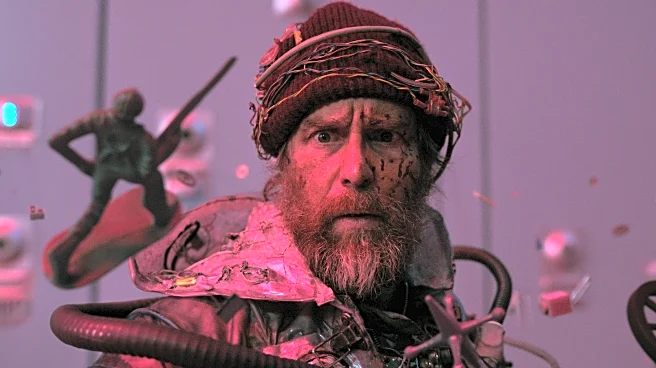Rapid Read • 8 min read
The International Organization for Migration (IOM) is a key entity related to the United Nations, providing planning and policy advice for governments concerning migrant workers, refugees, and internally displaced persons (IDPs). Established in 1951, the IOM has undergone several name changes, reflecting its evolving role from a logistics agency to a comprehensive migration agency. The organization focuses on collecting data, tracking migrant flows, negotiating agreements, and developing policies, distinguishing itself from the UNHCR, which is more involved in direct aid delivery. The IOM operates independently, reporting directly to UN member nations, and is not bound by international legal frameworks like the Geneva Convention.
AD
The IOM plays a crucial role in shaping global migration policies, impacting how countries manage migration flows and address human trafficking. Its work influences international treaties and agreements, affecting millions of migrants worldwide. The organization's activities are primarily funded by the United States and European Union, highlighting its significance in global migration governance. By providing data and policy advice, the IOM helps countries develop strategies to manage migration effectively, which is vital for maintaining social and economic stability in regions affected by large-scale migration.
The IOM continues to expand its role as a policy advisor and data collector in the field of migration. It is expected to further influence international migration policies and agreements, particularly in the Global South. The organization will likely continue to collaborate with governments and NGOs to implement migration-related policies and provide funding for local initiatives. As migration remains a critical global issue, the IOM's work will be essential in addressing challenges related to forced migration and human trafficking.
The IOM's activities have faced criticism from human rights organizations and activists, particularly regarding its involvement in processing migrants and asylum seekers in countries like Australia and Indonesia. These criticisms highlight the ethical and legal complexities of migration management. The organization's focus on policy rather than direct aid also raises questions about its role in addressing the immediate needs of migrants. As migration issues become more pressing, the IOM's approach and strategies will continue to be scrutinized by various stakeholders.
AD
More Stories You Might Enjoy













